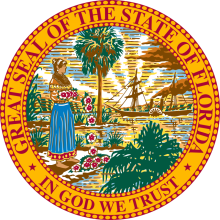Community Broadband Legislation Roundup - May 11, 2021
Snapshot
Florida Legislature rewrites utility pole bill to include language backed by municipal electric utilities
North Carolina’s County Broadband Authority Act includes clause drawing criticism from electric co-ops
Oklahoma Governor signs mapping bill, vetoes measure adding Tribal representation to state broadband council
The State Scene
Florida
A Florida bill, which included provisions that would have forced Florida’s municipal electric utilities and their ratepayers to pay private Internet Service Providers’ utility pole make-ready costs, was significantly revised before passing the State House by a unanimous vote of 115-0 on April 28.
H.B. 1239, which no longer includes the make-ready costs provisions, initially read like a regulatory wishlist for incumbent cable monopolies until it was redrafted to become a legislative package aimed at improving broadband deployment across the state. The revised bill now heads to the State Gov. Ron DeSantis for approval.
The final version of the bill establishes additional duties for Florida’s Office of Broadband, creates a state broadband grant program, and requires the Office to conduct mapping of unserved and underserved areas of the state -- a significant deviation from the version that was first introduced in February.


